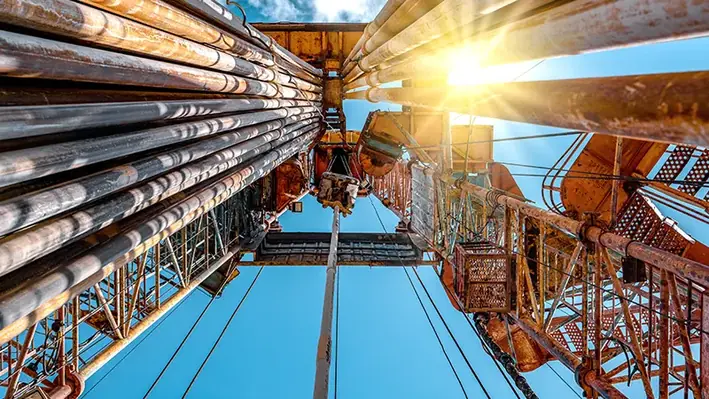
 PT Pertamina has signed a memorandum of understanding (MOU) with global drilling giant Halliburton to accelerate the deployment of advanced well construction and stimulation technologies in Indonesia.
PT Pertamina has signed a memorandum of understanding (MOU) with global drilling giant Halliburton to accelerate the deployment of advanced well construction and stimulation technologies in Indonesia.
Under the MOU, the two companies will evaluate opportunities for various advanced well services, Halliburton reported in a media statement.
This will include: multi-stage hydraulic fracturing, acid stimulation, advanced cementing services, as well as the potential application of closed-loop automation and artificial intelligence capabilities to improve drilling and fracturing performance in selected onshore fields.
According to Simon A. Mantiri, president director of PT Pertamina, the collaboration forms an integral part of the Indonesian state energy firm’s sustainable transformation of upstream production, increasing national lifting and ensuring reliable energy supply.
“With the support of advanced technology and global expertise, we are confident that mature fields can be revitalised and optimised to unlock their full potential, enabling the fields to, once again, be productive and contribute to national energy production,” he said.
Martin White, senior vice president, Asia Pacific, Halliburton, said his team brings global experience to local field operations to improve stimulation effectiveness and optimise production.
“Halliburton integrates proven unconventional methodologies with localised reservoir insights to improve performance, strengthen local capabilities, and deliver technology-based solutions that maximise asset value for our customers,” he noted.
“The MoU also expands Halliburton’s unconventional completions footprint in Indonesia and emphasises how the company’s collaborative approach maximises asset value.”
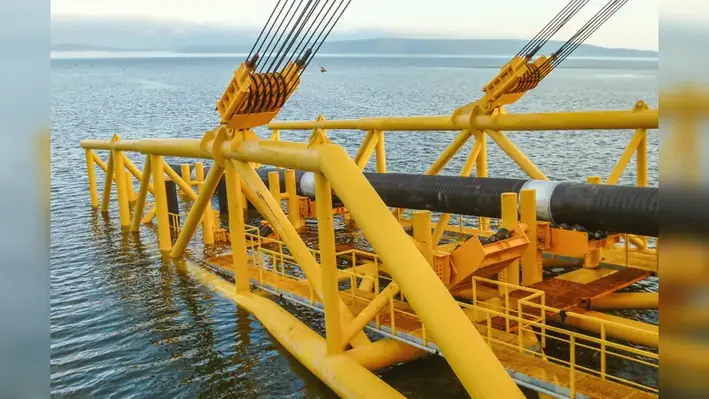

A Victorian parliamentary inquiry has heard warnings that ageing subsea pipelines in Bass Strait could leach hazardous contaminants into the marine environment, while also presenting a major opportunity for domestic steel recycling.
Witnesses appearing before the Legislative Council Environment and Planning Committee’s inquiry into decommissioning oil and gas infrastructure highlighted serious concerns over the legacy pollution from offshore facilities in Victoria’s Gippsland region.
Fern Cadman, Fossil Fuel Industry Campaigner at the Wilderness Society, told the committee that around 800 km of subsea pipelines in the Gippsland offshore area contain naturally occurring radioactive materials, mercury, hydrocarbons, and heavy metals.
These substances pose risks to human health and the environment.
“Even if buried, eventually they will degrade, and all that is going to end up in the environment,” Cadman said.
Stan Woodhouse from Friends of the Earth echoed these fears, noting that contaminants can bioaccumulate and transfer through the food chain.
“If we leave it on the seabed, it will end up on our dinner plates,” he said.
The groups urged full removal of the pipelines before corrosion advances, rejecting industry claims that removal is too difficult.
Cadman countered, “Industry says it’s too hard to remove them, but engineers say almost anything can be done, you just have to be prepared to pay for it and use the right tools.”
The committee is examining the scale, legal ownership, and structure of Victoria’s oil and gas infrastructure, including offshore wells, pipelines, high-pressure transmission systems, low-pressure distribution networks, and projects in Commonwealth waters.
In contrast, Jerusha Beresford, Sustainability Adviser at the Australian Steel Institute (ASI), presented decommissioning as a strategic resource for Australia’s circular economy.
The first phase of Bass Strait platform retirements is expected to yield 60,000 tonnes of high-grade steel from 12 platforms, with much more anticipated over the coming decade.
Beresford called for prioritising local recycling into domestic steel manufacturing rather than export.
“We are strongly recommending that the scrap steel recovered from the decommissioning of the Bass Strait oil and gas infrastructure is recognised as a valuable national resource,” he told the committee.
Demand for steel in renewable infrastructure is projected at about 400,000 tonnes annually through to 2030, making retained scrap essential.
Recycling scrap dramatically cuts carbon intensity compared with primary production from iron ore and coal, supporting low-emission steelmaking via electric arc furnaces (up to 90% recycled content) or enhanced blast furnace processes.
Economic benefits are substantial: every 10,000 tonnes processed locally generates 37 jobs and AUD$4.8mn in value-add, versus just AUD$1.3mn if exported.
Without regulation, contractors may export scrap for short-term profit, as past patterns suggest.
Beresford described the moment as a “once-in-a-generation” chance to bolster manufacturing, create employment, and advance sustainability in an industry employing 100,000 people and generating AUD$30bn yearly.
The committee’s report is due by June 2026.
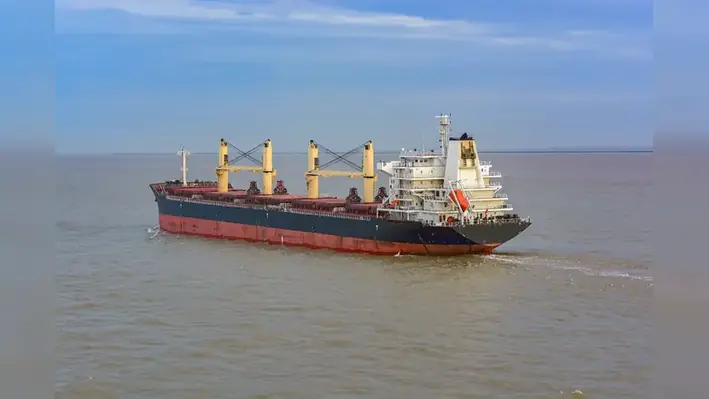
 Asia Pacific is preparing for a steady year of high impact exploration in 2026, with around 10 to 12 significant wells expected across the region.
Asia Pacific is preparing for a steady year of high impact exploration in 2026, with around 10 to 12 significant wells expected across the region.
While global exploration remains measured, activity here reflects a careful balance between ambition and financial discipline. Operators are focusing on frontier areas with the potential to unlock sizeable new plays, particularly in deep water settings.
Offshore Papua New Guinea, attention centres on the long anticipated Mailu prospect. This well is expected to test a frontier deep water carbonate play that could open a new chapter for exploration in the area. In Malaysia, deep water activity will also gather pace. The Jampuk and Langka prospects are both set to probe carbonate systems that remain lightly explored but technically promising.
Indonesia is likely to see renewed frontier drilling. Petronas may spud Akbar 1 in the Bobara production sharing contract in eastern Indonesia. If it proceeds, the well will bring an end to a twelve year pause in frontier deep water drilling in that region. At the same time, Eni continues its exploration efforts in the Kutei Basin, where it is drilling the large Miocene fan prospect known as Geliga. Success there could strengthen confidence in the wider basin.
In India, ONGC and Oil India are due to wrap up their frontier campaigns in the Andaman and Kerala Konkan basins in early 2026. The next phase of high impact drilling could then shift towards deeper waters, led by Vedanta Cairn India in the Krishna Godavari basin block KG DWHP 2017 1.
Australia is also expected to re enter the exploration scene. Santos is planning a return to drilling in the Roebuck Basin from late 2026, targeting potential Triassic plays at Curie and Ara. This marks a long awaited step back into frontier activity for the company.
Overall, Asia Pacific’s 2026 drilling programme signals cautious optimism, with several wells capable of reshaping the region’s exploration landscape.
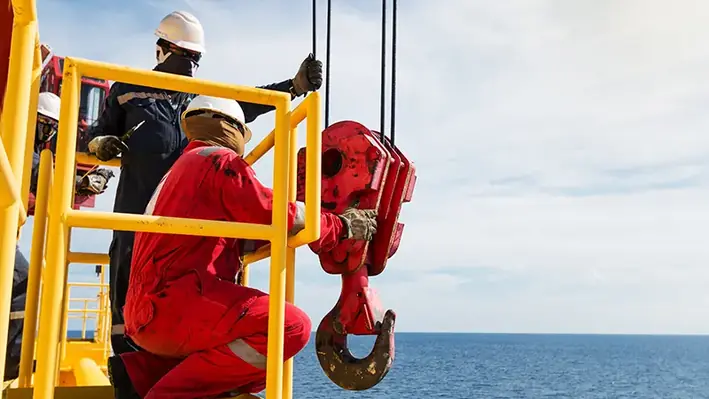
 Malaysia’s Vantris Energy continues its corporate transformation after rebranding from Sapura Energy in 2025 with work on projects in support of the country’s offshore sector.
Malaysia’s Vantris Energy continues its corporate transformation after rebranding from Sapura Energy in 2025 with work on projects in support of the country’s offshore sector.
Its indirect wholly-owned subsidiary, Sapura Offshore Sdn Bhd, has been awarded work orders for offshore transportation and installation (T&I) services in Malaysia by Petronas Carigali Sdn Bhd.
The awards comprise the provision of T&I services for offshore facilities at the Sepat Integrated Redevelopment Project and the Belud South Greenfield Development Project.
Work on both is set to commence early this year by the group’s engineering and construction (E&C) arm, with Belud South anticipated for completion by the end of 2027, and Sepat by the third quarter of 2029.
The company said in a statement that it also marked a “strategic shift” towards opportunities with lower-risk contracting models.
“These contracts demonstrate Vantris Energy’s offshore T&I capabilities, and our continued focus to deliver sustainable performance across our core businesses, prioritising opportunities aligned with our capabilities, regional strengths, and risk appetite,” said Vantris Energy CEO Muhammad Zamri Jusoh.
With a stronger balance sheet following its restructuring in late 2025, the company is keen to strengthen its business across all areas of operation.
Vantris Energy is also active in numerous other areas, including oil well intervention and decommissioning.
The company also last month announced the divestment of its 40% equity interest in L&T-Sapura Shipping Pvt. Ltd., which owns and operates the LTS3000 heavy-lift and pipelay vessel.
The company sold up to its joint-venture partner, Larsen & Toubro Limited (L&T), in a deal valued at US$30.5mn, consisting of equity consideration and the full repayment of the outstanding shareholder’s loan and accrued interests owed to the group.
It marked another step in Vantris Energy’s ongoing efforts to streamline, strengthen and optimise its asset portfolio, according to Jusoh.
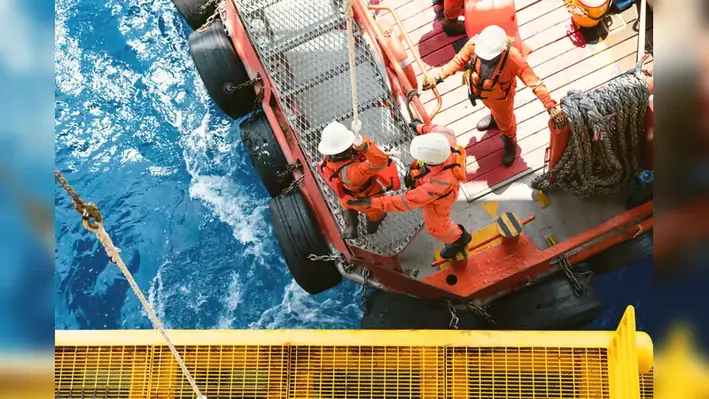
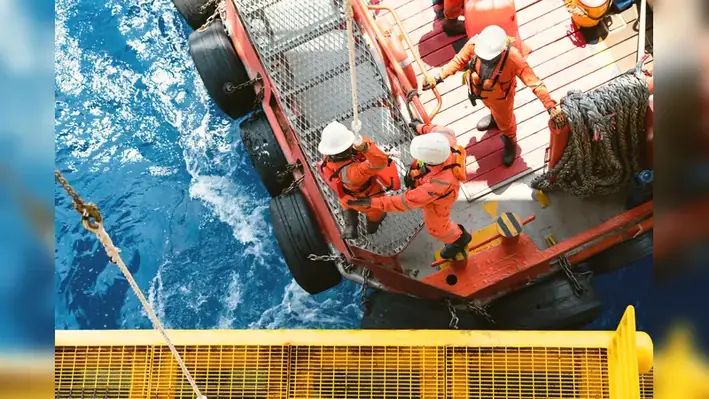 The Asia-Pacific offshore decommissioning market is steadily gaining importance within the wider global offshore decommissioning industry.
The Asia-Pacific offshore decommissioning market is steadily gaining importance within the wider global offshore decommissioning industry.
Although the region still lags behind North America and Europe in terms of total market value, it is expected to record strong growth over the coming years. This expansion is being driven by aging offshore oil and gas infrastructure, evolving regulatory frameworks, and rising environmental concerns, all of which are pushing operators and governments to prioritise end of life asset management.
Market research indicates that the APAC offshore decommissioning market in 2024 was valued at around US$1.5bn, with expectations that it will grow to more than US$3.5bn by 2035 at a CAGR approaching 7.8 % from 2025 to 2035. Major offshore producing nations including China, India, Japan, South Korea, Malaysia, Thailand, and Indonesia are playing a central role in this expansion. According to GM Insights, the Asia-Pacific market alone is forecast to grow at a CAGR of over 6 % through 2034, supported by the ageing of offshore assets and stronger regulatory oversight.
China currently holds the largest share of the regional market, supported by strict environmental standards and a significant number of ageing offshore installations. India is also emerging as a strong growth market, driven by supportive policies and shifts in national energy strategies. Meanwhile, Japan and South Korea are placing greater emphasis on advanced technologies and safety focused decommissioning methods, while countries such as Malaysia, Thailand, and Indonesia continue to develop their decommissioning capabilities as offshore fields mature.
Technological progress including robotics and remotely operated vessels, along with closer collaboration between stakeholders, is helping to reduce costs and address logistical challenges. Despite hurdles such as high execution costs and regulatory complexity, increasing environmental scrutiny and scheduled asset retirements position the APAC offshore decommissioning sector as a key growth area through 2035, creating long term opportunities for service providers and technology innovators.
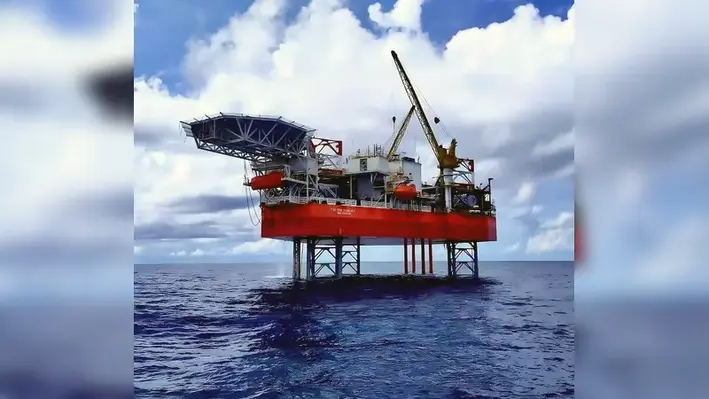
 T7 Global Bhd secured a new offshore work order through its wholly owned subsidiary, Tanjung Offshore Services Sdn Bhd, marking another milestone in its growing relationship with PETRONAS Carigali Sdn Bhd.
T7 Global Bhd secured a new offshore work order through its wholly owned subsidiary, Tanjung Offshore Services Sdn Bhd, marking another milestone in its growing relationship with PETRONAS Carigali Sdn Bhd.
In a filing with the bourse, the group said the contract covers integrated well plug and abandonment services together with project management team support for the Zuhal East well. The work order is scheduled to take effect from Nov 17, 2025 to March 31, 2026, positioning the group for steady activity over the coming period.
The latest award follows T7 Global’s earlier appointment as a panel contractor under PETRONAS Pan Malaysia contract. Under that programme, the group provides integrated well continuity services covering intervention, workover and abandonment, reinforcing its role across the upstream oil and gas value chain.
T7 Global said the new contract is expected to make a positive contribution to the group’s earnings and net assets for the financial year ending Dec 31, 2025 and beyond until the contract expires. This outlook aligns with the group’s broader strategy to strengthen long term revenue visibility in the energy services sector.
The announcement also comes shortly after a leadership transition. Slightly over a month ago, Azman Yakim was appointed group chief executive officer, taking over from Tan Kay Zhuin after three years in the role. Despite the upbeat developments, the group’s shares slipped half a sen or 1.69 percent to 29 sen at the noon break, valuing T7 Global at US$261.8million.
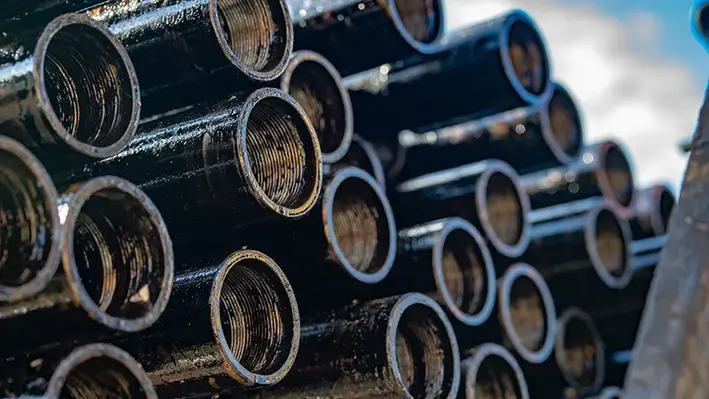
 Halliburton and the Agency for Science, Technology and Research (A*STAR) in Singapore have announced the launch of the Next-Generation Energy Xccelerator Joint Lab, or NEX Lab.
Halliburton and the Agency for Science, Technology and Research (A*STAR) in Singapore have announced the launch of the Next-Generation Energy Xccelerator Joint Lab, or NEX Lab.
This S$35mn initiative aims to accelerate the development and commercialisation of advanced well completion technologies for the energy industry.
“NEX Lab brings together Halliburton's global expertise in well completions and A*STAR's multidisciplinary research capabilities to advance cutting-edge technology that shapes the future of energy and the Future of Completions,” said Shawn Stasiuk, Senior Vice President of Halliburton’s Completion and Production Division.
“The combination of our strengths will deliver innovative solutions that support customers within the full spectrum of completion technologies, including low-carbon applications for the evolving energy landscape.”
In a statement, Halliburton said that NEX Lab will serve as a collaborative hub for research, engineering and testing.
The aim is to streamline the transition from early-stage innovation to field deployment by integrating design, prototyping and validation activities all under one programme.
“By integrating Halliburton’s global expertise with the local innovation ecosystem, NEX Lab will increase demand for specialists in high-value technical roles and build a more competitive, future ready talent pool for Singapore,” it noted.
The project is also supported by the Singapore Economic Development Board (EDB) with Alvin Tan, Singapore's Minister of State for Trade and Industry, officiating at the launch event.
Prof Lim Keng Hui, Assistant Chief Executive of A*STAR's Science and Engineering Research Council, said the collaboration with Halliburton will help to translate research into real-world solutions.
“Through NEX Lab, we will work with Halliburton to build advanced manufacturing and energy technology capabilities in Singapore and create opportunities for our scientific and engineering talent to deliver impact beyond the joint lab. NEX Lab will also help develop and qualify local suppliers, strengthening resilient, high-value energy supply chains.”
Halliburton has collaborated with A*STAR since 2019 through the A*STAR Advanced Remanufacturing and Technology Centre's industry consortium, investing more than S$2mn in R&D and embarking on projects focused on materials and design improvements, workflow and inspection automation, and sensor development.
Lim Wey-Len, Executive Cice President of EDB, said NEX Lab exemplifies Singapore's leadership in advanced manufacturing and innovation.
“We welcome more collaborations with global energy leaders like Halliburton, so that companies can develop breakthrough solutions from Singapore that strengthen their global competitiveness and advance the energy transition.
“This collaboration will also create meaningful upskilling and innovation opportunities for local enterprises and our workforce.”
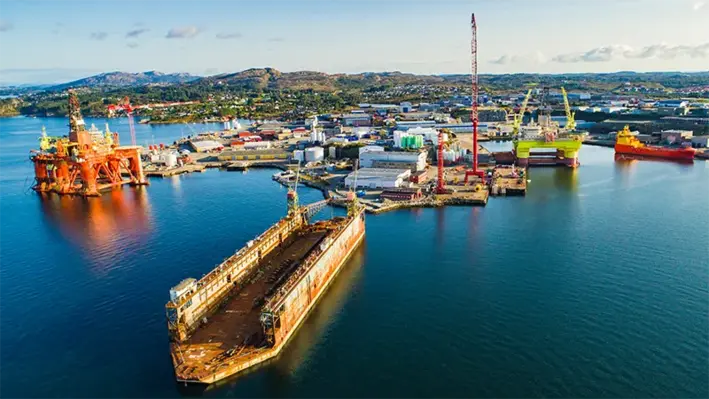
 MFE Inspection Solutions has launched MFE Offshore, a dedicated new division focused entirely on subsea and offshore operations.
MFE Inspection Solutions has launched MFE Offshore, a dedicated new division focused entirely on subsea and offshore operations.
Designed to meet the demanding needs of offshore oil and gas, offshore wind energy and wider maritime industries, the new division strengthens MFE’s commitment to delivering reliable inspection technology and real world expertise where conditions are at their toughest.
Offshore environments are unforgiving. Equipment must perform under constant exposure to saltwater, extreme weather, restricted access and complex subsea conditions. Recognising this reality, MFE Offshore has been built to support operators with tools and systems that work beyond controlled environments and perform consistently in the field.
Dylan Duke, CEO of MFE Inspection Solutions, said,“Offshore inspections are incredibly complex, and demand more than just good equipment. For over 30 years, MFE has supported industrial inspections by helping customers choose the right tools, train their teams, and build workflows that actually work in the field. MFE Offshore formalizes that approach for subsea and offshore operations, bringing together specialized technology, deep technical support, and experienced offshore leadership."
Unlike traditional inspection providers, MFE Offshore follows a consultative model. The team works closely with clients to understand operational challenges, identify suitable inspection technologies and provide hands on training. Support continues well beyond deployment, ensuring teams remain confident and effective long after equipment is delivered.
Wendy Post, General Manager of MFE Offshore added,“Offshore personnel don’t have the luxury of trial and error. Harsh environments, limited access, and tight inspection windows mean everything has to work the first time. MFE Offshore was built to support those realities, helping operators find inspection tools designed for offshore use, training teams to deploy them correctly, and staying engaged long after the equipment arrives.”
MFE currently supports more than 9,000 companies worldwide and delivers over 26,000 hours of technical training each year. With the introduction of MFE Offshore, the company expands its mission to empower inspection teams with dependable technology, expert guidance and long term support tailored specifically to offshore and subsea operations.
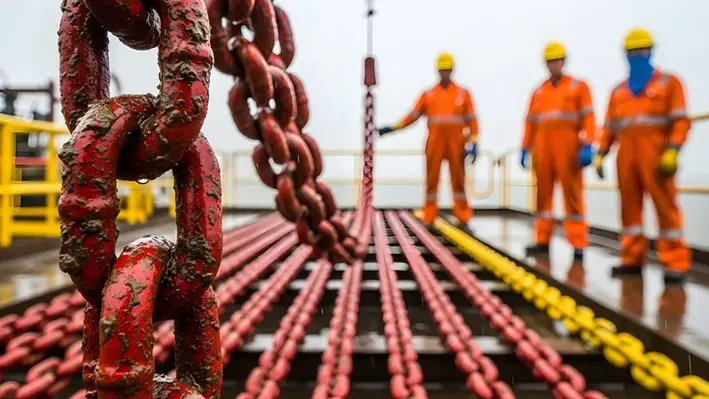
 With some of Vietnam’s older fields entering the decommissioning stage, reflecting the maturity of south-east Asia’s offshore oil and gas sector, the industry is still capable of throwing up a surprise or two.
With some of Vietnam’s older fields entering the decommissioning stage, reflecting the maturity of south-east Asia’s offshore oil and gas sector, the industry is still capable of throwing up a surprise or two.
In a move that should stir longer-term demand for oil well services of all kinds, Vietnam has just unearthed its largest discovery in a generation.
For US independent Murphy Oil Corporation, 2026 truly began with a bang with the drilling of the Hai Su Vang-2X (HSV-2X) appraisal well in Block 15-2/17 in the Cuu Long Basin, yielding what is thought to be the biggest find across the region in 20 years.
Located approximately 40 miles off the coast of Vietnam, the well spud in early October 2025 and marks a major milestone in Murphy’s strategic appraisal campaign for the Hai Su Vang (Golden Sea Lion) field.
The HSV-2X well was drilled to appraise the 2025 Hai Su Vang discovery, where an initial discovery well encountered approximately 370 feet of net oil pay across two reservoirs.
The HSV-2X well encountered 429 feet of net oil pay across the same two reservoirs, including 332 feet of net oil pay in the deeper primary reservoir and 97 feet of net oil pay in the shallow reservoir.
While further testing is ongoing, the primary reservoir achieved a production rate of 6,000 barrels of oil per day (bopd) of high-quality, 37-degree API oil.
These results confirm Hai Su Vang as a “significant discovery,” a Murphy Oil statement noted, pushing up resource estimates at the site beyond the initial 430 MMBOE high-end range.
“This is a pivotal moment for our Vietnam business,” said Eric Hambly, Murphy Oil’s President and CEO.
“The success of HSV-2X not only reinforces the commerciality of the Hai Su Vang field but also sets the stage for a robust development programme.”
Additional appraisal wells are needed to further refine the range of recoverable resources for both reservoirs — the HSV-3X appraisal in Block 15-1/05, and the HSV-4X well in Block 15-2/17 are both included in the group’s 2026 capital programme.
It also bodes well for the Cuu Long Basin going forward and the scope for oil well services in the region.
Now considered a mature basin, work on decommissioning, dismantling and relocation of Vietnam’s Song Doc Platform is already underway.
It means news from the Murphy Oil camp at the start of 2026 will be welcomed by the whole services industry.
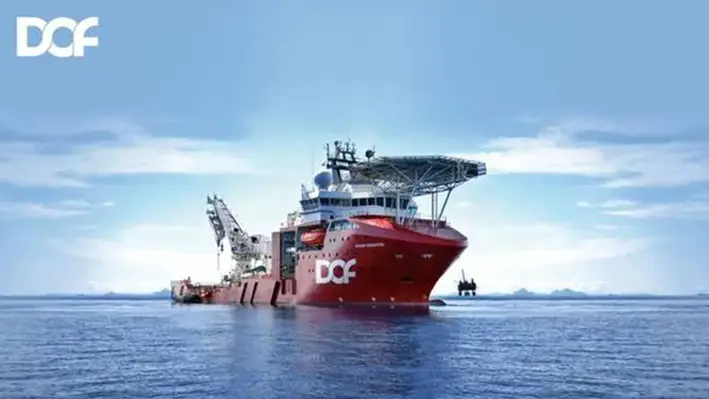
 Norwegian offshore vessel owner and subsea services specialist DOF Group has strengthened its position in the Asia-Pacific (APAC) market after securing two significant offshore contracts for vessels and integrated subsea services.
Norwegian offshore vessel owner and subsea services specialist DOF Group has strengthened its position in the Asia-Pacific (APAC) market after securing two significant offshore contracts for vessels and integrated subsea services.
The first agreement is a three-year frame contract covering subsea inspection, maintenance and repair (IMR) services across the APAC region. As part of this deal, DOF has already confirmed a call-off that will deploy the dive support vessel (DSV) Skandi Singapore. The campaign will focus on diver-less subsea operations for a brownfield tieback project, scheduled to take place in the first half of 2026.
In addition, DOF has been awarded a second contract linked to a hook-up campaign. This scope of work will be carried out by the multipurpose support vessel (MPSV) Skandi Hercules, with offshore activities also planned for the first half of 2026.
Together, the two contracts are valued at between US$25MN and US$50MN and will see DOF deliver its full range of in-house capabilities. These include project management, engineering, procurement and logistics support, reinforcing the company’s end-to-end offshore services offering.
The combined duration of the offshore campaigns is expected to span between 90 and 120 days, highlighting sustained demand for subsea expertise and offshore construction services in the APAC energy market.
Mons S. Aase, CEO of DOF, said,“We look forward to delivering safe, efficient, world class subsea and marine services, further enhancing our reputation as a trusted partner in the APAC region.” said .
The latest contract wins underline DOF’s growing momentum in offshore energy services and its strategic focus on long-term opportunities in the Asia-Pacific region.
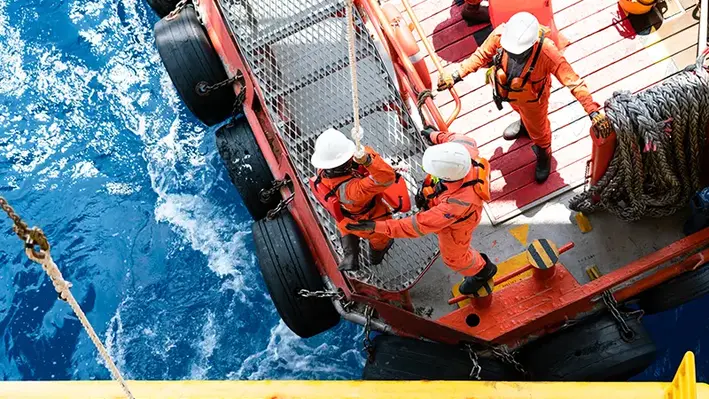
 As the year draws to a close, Esso Australia will remember 2025 as a year of several milestones achieved in terms of decommissioning.
As the year draws to a close, Esso Australia will remember 2025 as a year of several milestones achieved in terms of decommissioning.
Tackling Australia’s largest decommissioning project, the company has completed nearly US$3bn of initial works across offshore operations. This included the permanent sealing of more than 200 wells in Bass Strait, and processing over 10,000 tonnes of steel and concrete for recycling or disposal at Barry Beach Marine Terminal.
The company started out with abandonment activities in the Bream B platform, which was an unstaffed facility. As part of the first phase of a series of high-level decommissioning campaigns, the platform's topsides that formed concrete gravity structures, were removed. The Valaris 107 jack-up rig was deployed to commence plug and abandonment activities across 21 platform-based wells at Bream B. While these activities begun as early as 2024, this year saw the second stage of the plug and abandonment scope.
Other areas of work included end-of-life activities on open water exploration wells and comparatively older wells before moving on to Halibut, which is nearly 60-year old. This work followed extensive inspections on underwater platforms as well as on structural platform above water, including flare booms. Extra-solid steel piled jackets supporting the Halibut platform that needs removal will be around 70-m long, roughly implying the height of a 20-storey building on land.
Work on the Haliburt platform will be followed by decommissioning activities on Esso's first platform, Marlin One.
Other activities completed this year includes abandoning as many as 222 platforms while restoring the original caprocks.
Once Barry Beach work was opened to shareholders for feedback, the company had to rethink its approach and avoid expansion of the port at Barry Beach so as to ensure minimal impact on the Ramsar wetland and onshore environment. Barry Beach is now being equipped with hardstand to accomodate the structures when they arrive.
These activities form a part of solid groundwork by Esso Australia, which will prepare the company before the world’s largest construction vessel, the Allseas Pioneering Spirit, arrives, and will travel from the Netherlands to start removal of 12 retired offshore facilities in 2027.
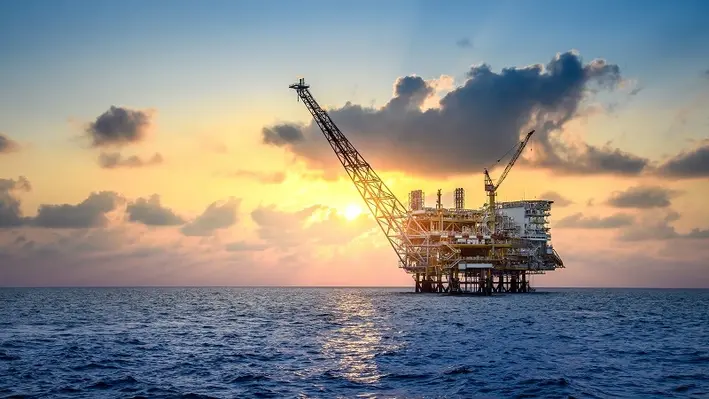

The Asia-Pacific offshore oil and gas sector advanced significantly in well decommissioning and abandonment during Q4 2025, with key developments in regulatory frameworks, cost assessments, and workforce development amid a projected regional spend of US$30-100bn by 2030 for over 7,000 wells and 1,500 platforms.
Australia took centre stage with the release of its Offshore Resources Decommissioning Roadmap on 9 December.
This government initiative outlines strategies to foster a domestic decommissioning industry, emphasising timely and environmentally responsible removal of infrastructure, workforce training, and international partnerships.
It projects approximately A$60bn in spending over the next 30-50 years, supporting economic opportunities while aligning with net-zero transitions.
Complementing this, a November report by Xodus Group revised Australia's offshore decommissioning liability downward to A$43.6bn (A$66.8bn inflation-adjusted) through 2070, covering over 700 wells, 7,600 km of pipelines, and 520 subsea structures.
The reduction stems from refined forecasting, advancements in well plugging and abandonment (P&A) techniques, and potential efficiencies from coordinated campaigns and emerging technologies.
In Malaysia, Petronas launched the Hydraulic Workover Unit (HWU) Academy on 23 October to address skills shortages in well abandonment.
The academy, a collaboration with industry partners, universities, and government ministries, offers hands-on training using retired assets to build national expertise for safe, cost-effective P&A operations.
This supports Petronas' ongoing plans to plug and abandon around 153 wells and decommission 37 offshore facilities through 2027-2028.
These initiatives underscore the region's focus on cost management, regulatory compliance, and local capacity as Southeast Asia prepares for its decommissioning peak.
Innovations like rigless P&A and rigs-to-reefs are gaining traction to balance economics and environmental stewardship.
As 2025 closes, stakeholders anticipate accelerated activities in 2026, driven by maturing fields and energy transition pressures.
Page 1 of 15
Copyright © 2026 Offshore Network